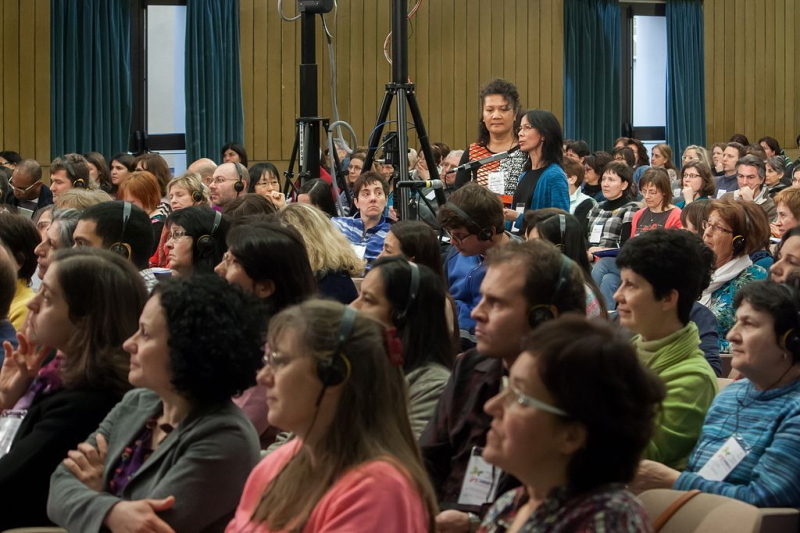 There was overwhelming agreement amongst the 400 youth workers who attended the conference, that they had chosen their profession because of love and not because of the career. Some of the topics discussed included: accompanying adolescents; role of the teacher; educating to do what is difficult; the community as educator. Vince and Make are from Melbourne, Australia. “I’m originally from Futuna – one more step and you fall off the globe!” Make joked. “When I went to visit a small community on the Island of Kiribati, the children were surprised by the presence of a stranger, and then suprised by the fact that I played games with them. I ran for two hours even though I’m no longer the right age that. We didn’t speak the same language, but a special relationship was created between us.
There was overwhelming agreement amongst the 400 youth workers who attended the conference, that they had chosen their profession because of love and not because of the career. Some of the topics discussed included: accompanying adolescents; role of the teacher; educating to do what is difficult; the community as educator. Vince and Make are from Melbourne, Australia. “I’m originally from Futuna – one more step and you fall off the globe!” Make joked. “When I went to visit a small community on the Island of Kiribati, the children were surprised by the presence of a stranger, and then suprised by the fact that I played games with them. I ran for two hours even though I’m no longer the right age that. We didn’t speak the same language, but a special relationship was created between us. 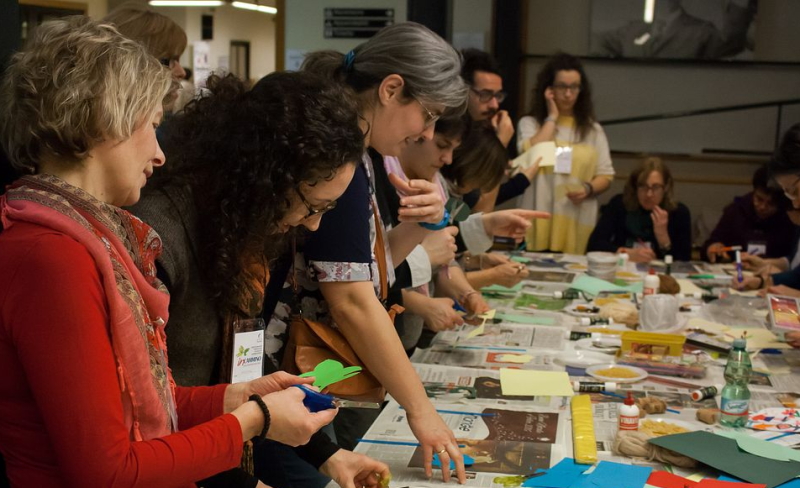 What is their educational model? They call it a person-relationship model in which one is able to love and be loved. It is rooted in the thought of Chiara Lubich. Her influence on the field of education is being developed by a group of researchers in the area of pedagogy and by the Abba School and the Sophia University Institute whose graduates were among the presenters. There were ample offerings for every age group, covering topics such as global education; types of group animators; group dynamics; conflict resolution; investigations on faith and reason; lifestyle and the environment; gender; addiction and mass media. Several interactive activities explored expressing emotions through dance; theatre; puppetting; shaping balloons; arts and crafts; video-making; photography and using shapes and images.
What is their educational model? They call it a person-relationship model in which one is able to love and be loved. It is rooted in the thought of Chiara Lubich. Her influence on the field of education is being developed by a group of researchers in the area of pedagogy and by the Abba School and the Sophia University Institute whose graduates were among the presenters. There were ample offerings for every age group, covering topics such as global education; types of group animators; group dynamics; conflict resolution; investigations on faith and reason; lifestyle and the environment; gender; addiction and mass media. Several interactive activities explored expressing emotions through dance; theatre; puppetting; shaping balloons; arts and crafts; video-making; photography and using shapes and images. 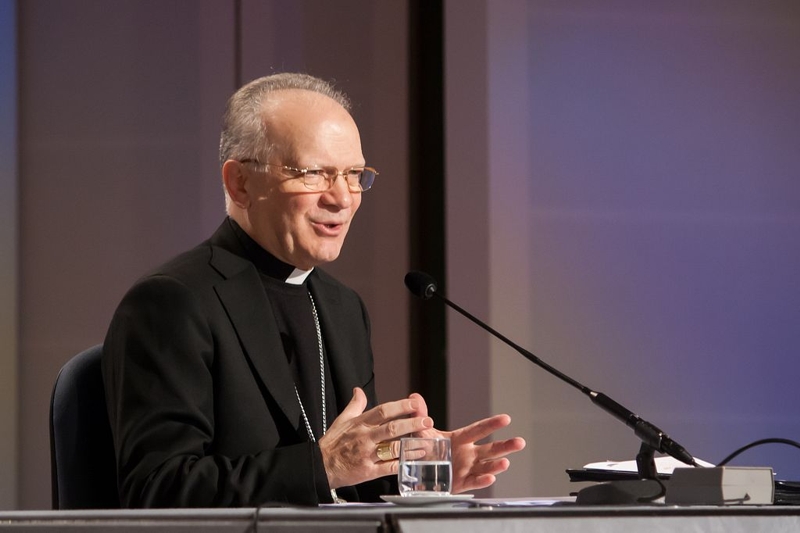 It was all a concrete opportunity to “put head, heart and hands to work,” to experience it and then live it along with the children. This educational method is particularly dear to the heart of Pope Francis (see World Congress on Education, Rome, Italy, November 2015). During his presentation, Msgr Vincenzo Zani, Secretary of the Congregation for Catholic Education offered Pope Francis’s vision for education to all the formators at Castel Gandolfo from February 5-10, 2015.
It was all a concrete opportunity to “put head, heart and hands to work,” to experience it and then live it along with the children. This educational method is particularly dear to the heart of Pope Francis (see World Congress on Education, Rome, Italy, November 2015). During his presentation, Msgr Vincenzo Zani, Secretary of the Congregation for Catholic Education offered Pope Francis’s vision for education to all the formators at Castel Gandolfo from February 5-10, 2015. 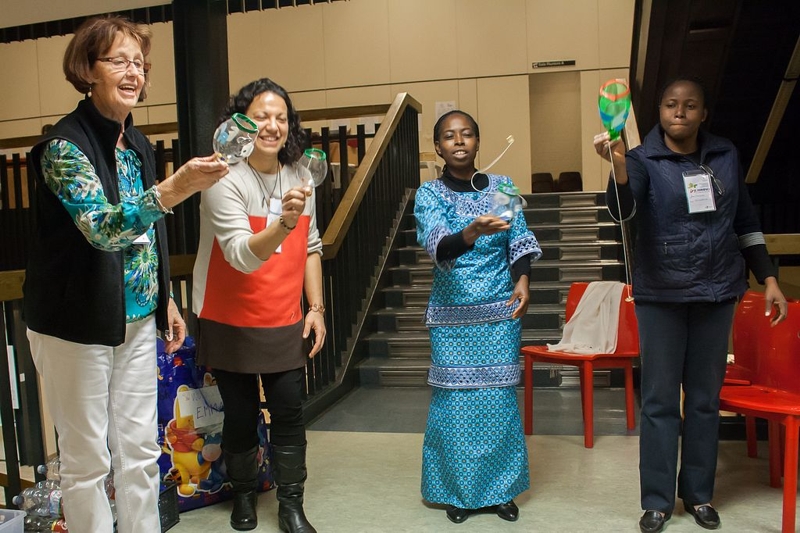 Today’s educators must be master risk-takers, brave explorers, humble builders of relationships – never by themselves but as members of the community in which they operate. Today’s educators experience failures, but never give up, so that they can teach others to never give up. Above all an educator should strive to be authentic, a credible witness. Teachers often find themselves involved with children living through difficult situations. These children suffer because of family instability or violence . . . but at least there is one person in their lives who plants some seeds of hope. It is always possible to begin again, helping them to activate what in the technical jargon is termed resiliance, drawing on one’s own resources to face difficulties, to adapt and to overcome.
Today’s educators must be master risk-takers, brave explorers, humble builders of relationships – never by themselves but as members of the community in which they operate. Today’s educators experience failures, but never give up, so that they can teach others to never give up. Above all an educator should strive to be authentic, a credible witness. Teachers often find themselves involved with children living through difficult situations. These children suffer because of family instability or violence . . . but at least there is one person in their lives who plants some seeds of hope. It is always possible to begin again, helping them to activate what in the technical jargon is termed resiliance, drawing on one’s own resources to face difficulties, to adapt and to overcome. 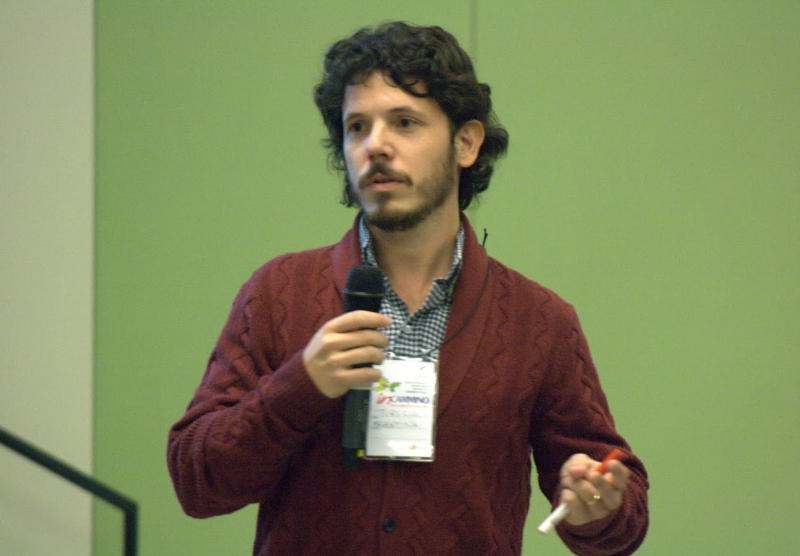 “There is a need to acquire more skills,” explained Argentinian psychologist Arturo Clariá “also from the fields of sociology and psychology, coming up with strategies for working together, so that we can be responsible companions for our young charges, with our gaze always fixed on the transcendent. In contrast to educators from across the world who are immersed in the problems of the current cultures, in a globalised world that has led to the loss of meaning and self-esteem, and to problems in fulfilling the plan for one’s life. At times you don’t know what to do. How are we to face such a fluid society? The educator is not the holder of knowledge, but the director of an orchestra in which each player can play his or her instrument, and the educator must draw out the harmony from each musician.” This is an educational approach that moves beyond enclosed spaces and reaches the level of feelings, social skills and values: “This is how a culture of brotherhood and peace will be created.” Photo gallery: https://goo.gl/photos/BjmCh1FPnXaxyBQh8 Facebook: In Cammino Educarsi per Educare
“There is a need to acquire more skills,” explained Argentinian psychologist Arturo Clariá “also from the fields of sociology and psychology, coming up with strategies for working together, so that we can be responsible companions for our young charges, with our gaze always fixed on the transcendent. In contrast to educators from across the world who are immersed in the problems of the current cultures, in a globalised world that has led to the loss of meaning and self-esteem, and to problems in fulfilling the plan for one’s life. At times you don’t know what to do. How are we to face such a fluid society? The educator is not the holder of knowledge, but the director of an orchestra in which each player can play his or her instrument, and the educator must draw out the harmony from each musician.” This is an educational approach that moves beyond enclosed spaces and reaches the level of feelings, social skills and values: “This is how a culture of brotherhood and peace will be created.” Photo gallery: https://goo.gl/photos/BjmCh1FPnXaxyBQh8 Facebook: In Cammino Educarsi per Educare
Avoid gossip
Avoid gossip




0 Comments